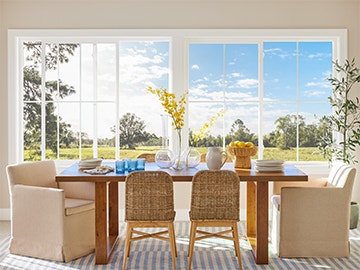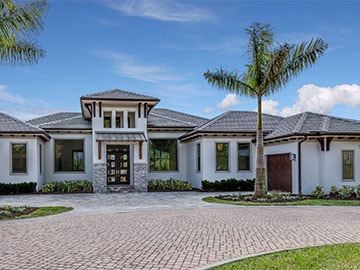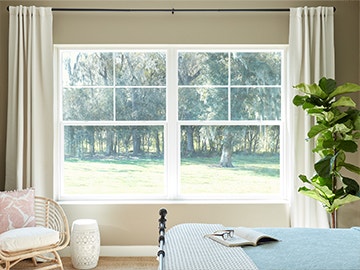Vinyl Windows
Low-maintenance CWS vinyl windows are made with a high-quality vinyl formula tested for excellent performance in Florida’s heat and humidity. Featuring multiple insulating air chambers, vinyl windows are exceptionally energy efficient and keep homes more comfortable year-round. Impact-resistant and non-impact-resistant vinyl windows deliver the protection and energy efficiency you need with beauty and durability.
Why Choose Vinyl Windows?
Energy Efficient
Strong multi-chambered frames help reduce the transfer of heat and keep Florida homes comfortable.
Long-Lasting Beauty
Our high-quality vinyl formulation keeps windows beautiful and minimizes color change over time.
Low Maintenance
Made to last and easy to care for, vinyl windows never require painting or refinishing.
Available Vinyl Windows
Browse our selection of impact and non-impact vinyl windows.
- View Comfort Shield Window Details

Comfort Shield
Vinyl Windows
Non-Impact
High-performance windows for convenient, everyday protection and comfort.
- Made of high-quality vinyl
- Non-impact resistant
- Enhanced safety and security
- View Hurricane Guard Window Details
 New!
New!Hurricane Guard
Vinyl & Aluminum Windows
Impact
Our highest rated impact windows for Florida's extreme climate.
- Options rated for all coastal areas, including HVHZ
- Quick and accurate installation
- Effortless protection
- View StormStrong Window Details

StormStrong
Vinyl Windows
Impact & Non-Impact
Windows designed to weather the storm and protect what matters.
- Made of vinyl
- Impact resistant
- Strong storm protection